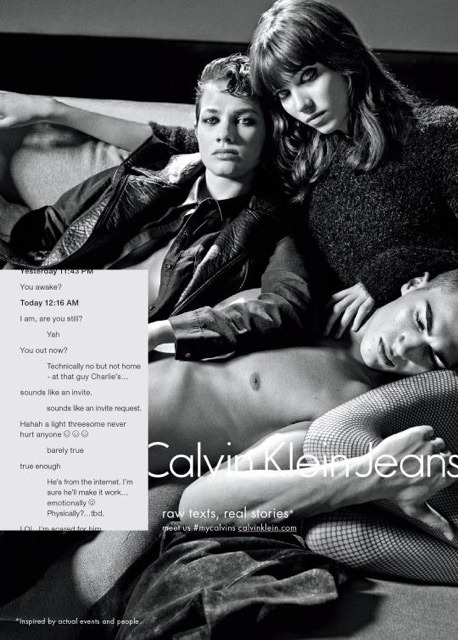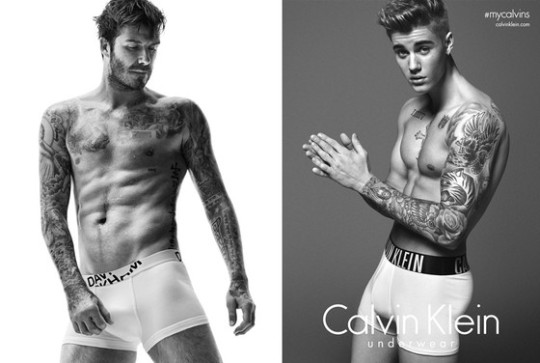
No stranger to controversial advertising (such as the infamous early ‘80s commercial starring a then 15-year-old Brooke Shields telling the world that nothing comes between her and her Calvins), the fashion brand’s most recent #mycalvins campaign begs the question: can a brand go too far? Maybe. This time, CK is pushing beyond barely clad models in suggestive poses by including promiscuous sexting
conversations, Tinder style, thereby taking the “sex sells” motto to
another level.
I will agree that the campaign’s effort to spark “conversation
though provocation” is attention grabbing, but, after reading the ad, the first
two words that came to mind were raunchy and inappropriate. There is no clear
relevance or showcasing of the actual product and the sexting dialogue is a
large intruding box that takes attention away from the product. At least previous ads featuring celebrities in nothing but CK undergarments still had a subtle,
sleek sexiness about them – stressing comfort and ease. Nothing about these ads
says subtle sexiness.

Claiming that these sexts “are authentic and true to how this consumer communicates” and
that they are “highlighting the truth about dating,” CK is stereotyping a generation. As a Millennial myself, I can tell you that not all of us believe casual sex, threesomes, and cheating are considered dating. With
50 million active users on Tinder and over 100 million overall on dating sites,
it is absolutely fair to say that the Internet has transformed the dating scene.
But with Tinder’s outright reputation for connecting people solely to hook-up
and have casual sex, I think CK is way off the mark in “bringing to life the truths
about modern love.”
Additionally,
while not directly aimed at teens, statistics show that a shocking number of high school students have been involved in some
form of nude sexting, an act classified as child pornography. So what message
are we sending to our younger generation? Why is CK glorifying something that
these children should morally and legally not be engaging in? Is that a place a brand, no matter how “hip” or “current,” should ever want to be?
We’ve
seen other companies like Abercrombie and Hollister shy away from this area of advertising, due to similar controversy that resulted in disappointing sales. Will the same hold true for CK’s image and reputation?




